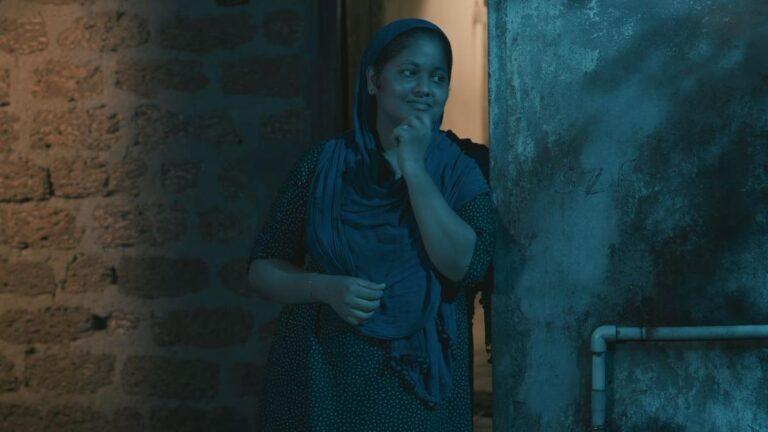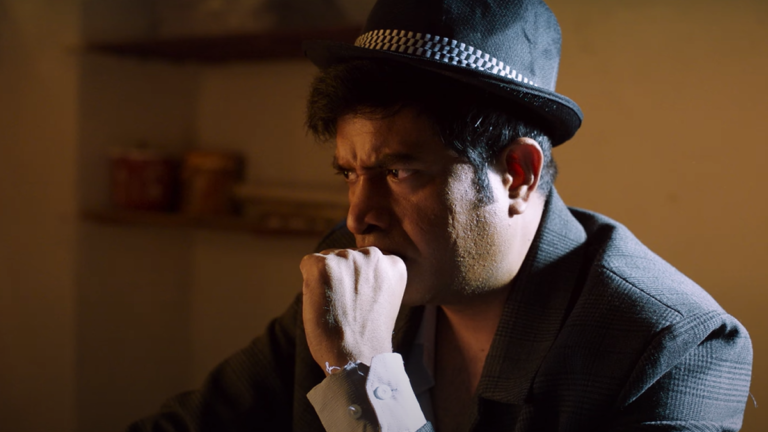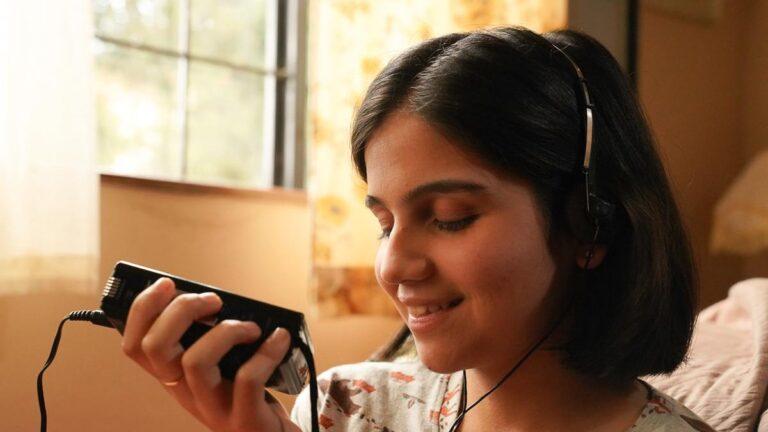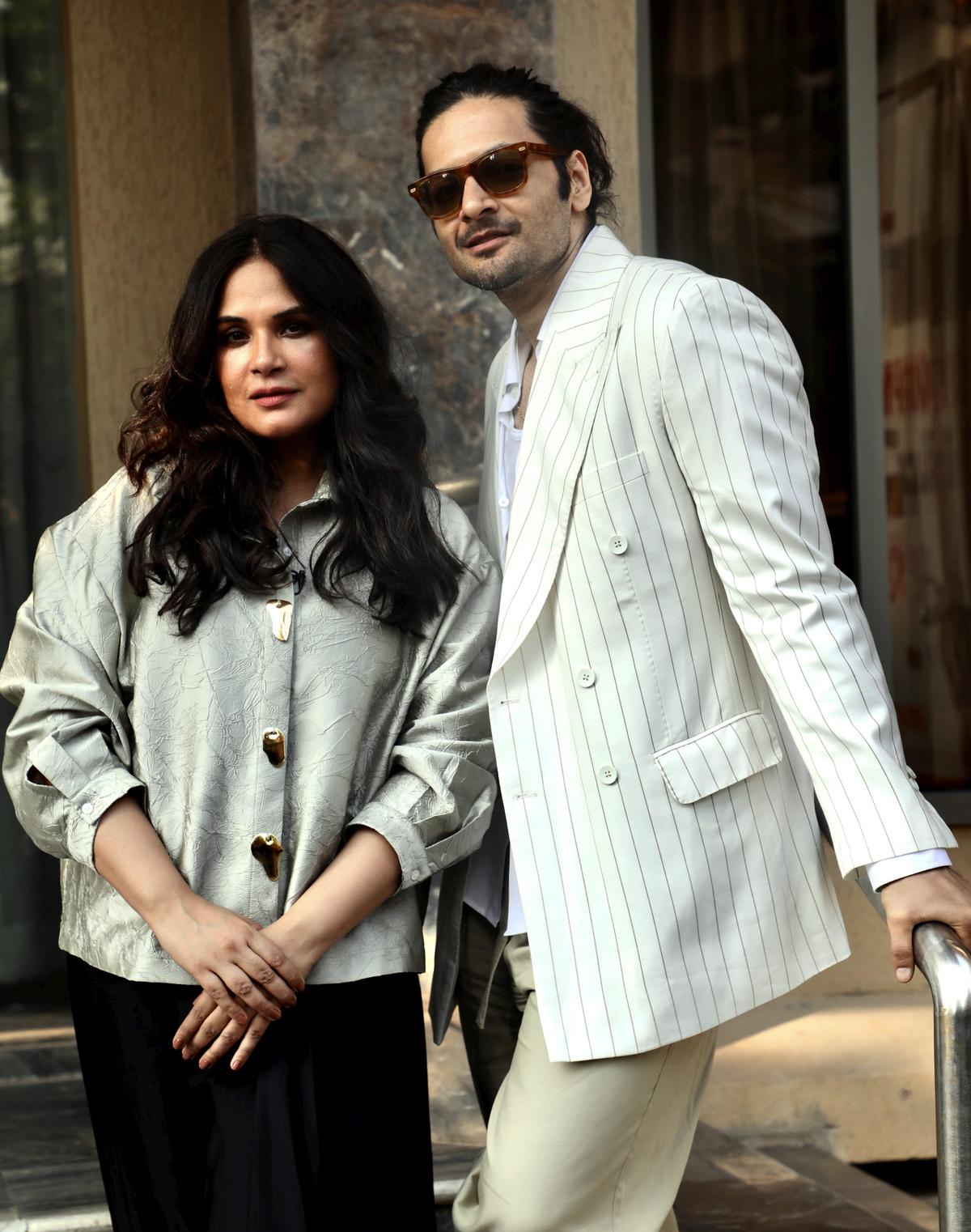A few years ago the Malayalam lexicon got a new word, feminichi, a slur for a feminist or a woman with an opinion. Fasil Muhammed presents the term in a new light with his directorial debut, Feminichi Fathima (Feminist Fathima), which premiered at the ongoing International Film Festival of Kerala in the competition section.
The film’s layered narrative does not give patriarchy a tight slap. Instead, it is told in a subtle but satirical way that the point is not lost either on the characters or the audience.
The protagonist Fathima’s life revolves around her home – her extremely conservative husband, Ashraf, who teaches at a madrassa, their three kids and her mother-in-law. She is always at the beck and call of her husband, be it to switch on the fan or fetch his footwear and is subjected to his taunts for everything she does. He is livid when Fathima refuses to bear another child. The unhappy mother-in-law adds to her misery.
Shamla Hamza (left) and Viji Viswanath in Feminichi Fathima
| Photo Credit:
SPECIAL ARRANGEMENT
Resigned to her fate, Fathima never bothers to react. But her simmering frustration reaches breaking point when her eldest child wets the mattress in his sleep. Her repeated attempts to clean it fail and she is forced to sleep without the mattress on her cot, thus escalating her back pain. Ashraf refuses to buy a new mattress and stops her from buying one, paying monthly instalments, saying it goes against their religion to buy anything paying an interest! When she lugs home her neighbour’s old mattress, he opposes that as well. Fathima has no other choice but to find a way to buy one on her own.

Organic transformation
Fasil, who is also the writer and editor of the film, smartly weaves in situations and dialogues that organically bring out a transformation in Fathima. There is no dramatic revolt, she just finds her voice. “This is the feminism that I know of. It is all about updating oneself with the changing times, irrespective of the religion that you belong to,” says Fasil, a spot editor in Malayalam films, who started his career by making short films and is currently directing the third season of the popular web series, Tuition Veedu, streaming on YouTube.
Fasil says that he placed the story in a Muslim context because of his familiarity with that milieu. “I arrived at the title first because I liked the sound of it. The story was different then. It changed when I went to stay with my sister. I woke up in the morning listening to her talking to herself when she found that her son had wet the mattress in his sleep – moothram thattikkandu kondu nadakkernnu, ini ayinte manam povulya. It means she was trying her best to ensure that he does not wet the mattress and now the stink won’t go away. That dialogue stuck with me and I developed Fathima’s story around the scenario,” says Fasil.
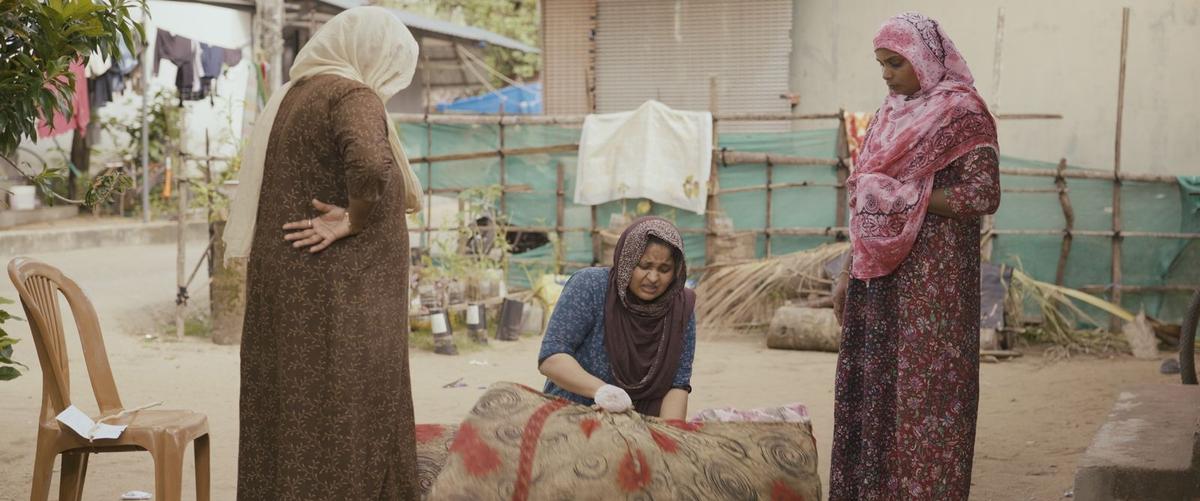
A still from Feminichi Fathima
| Photo Credit:
SPECIAL ARRANGEMENT

Fasil admits that he has seen countless Fathimas around him. “I always wondered why they were not responding. It was a deliberate decision to present it in a satirical way because I believe in entertaining the viewer even when you are presenting a contentious, serious issue,” he states.
Shot along the coastal belt of Ponnani, the film has actors from his web series and many who live in and around the location. “There was tremendous support from the residents. I found several Fathimas in the crowd that turned up to watch the shoot. They were cracking up when they saw scenes that happen in their lives. That was when I felt that the film would be discussed,” he says.

Fasil Muhammed, director of Feminichi Fathima
| Photo Credit:
SPECIAL ARRANGEMENT
Fasil stresses that he was never worried about whether the film will court controversy. “That thought never crossed my mind because I was not making fun of any religion or sect. I have just stated the facts. Also, I have shown both the modern and conservative elements in Muslim society. On one hand there is Ashraf who holds on to age-old regressive beliefs while on the other there is an ustaad who advises him to move with the changing times. Then there is Suhra (a brilliant Viji Viswanath), Fathima’s no-filter neighbour, who is modern in her outlook and supports her daughter who is active on social media,” he says.
The film is produced by Thamar K.V., director of 1001 Nunakal, in which Fasil was the spot editor, and Sudheesh Scaria, who acted in the film. Shamla Hamza, who played a character in the same film, was cast as Fathima.

A promotion poster of Feminichi Fathima
| Photo Credit:
SPECIAL ARRANGEMENT
Shamla, who was present at the IFFK with her 11-month-old daughter, Lazin Zoe, says that it was not difficult to become Fathima because she has seen many such characters in real life. “Even our mothers are like Fathima in several ways,” says Shamla.
Currently settled in Dubai, Shamla says that her daughter was only six months old when she shot for Feminichi Fathima. “Fasil and the team was extremely understanding and let me take the break to breastfeed her or to be with her.” Shamla adds that she fell in love with acting inspired by her father, a musician and actor, Kunji Hamza Thrithala. “I auditioned for 1001 Nunakal after by wedding and my husband, Mohammed Salih, has been supportive of my dreams, unlike the case of Fathima,” she says.

Kumar Sunil, a veteran theatreperson and now a busy artiste in Malayalam cinema, observes that it was Fasil who prepared him to become Ashraf. “I have not seen any ustaad from close quarters to understand his life and mannerisms. It was impossible to find a reference as well. Fasil guided me throughout and if the role has come out well the credit should go to him,” Kumar says.
Fasil adds that they hope to release the film in theatres. “1001 Nunakal premiered at the IFFK in 2022 and back then I had wished to screen my film at the festival some day. That has finally materialised, that too with an entry in the competition section,” he says.
Feminichi Fathima will be screened today at New theatre at 5.30pm.
Published – December 17, 2024 03:10 pm IST
